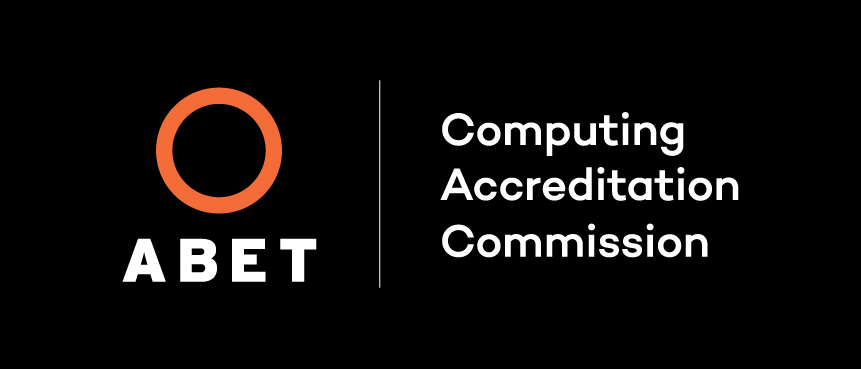Computer Information Systems B.S.
Design, analyze, operate and manage information systems so that decision makers have the information they need at their fingertips.
Computer information systems analyze an organization’s computer needs, finding ways to gather, construct, and transmit information efficiently and safely in the organization’s computer networks. The B.S. in Computer Information Systems focuses on using technology to manage information in a business context.
The program’s core courses focus on business programming, systems analysis and design, operating systems concepts, database management systems, networks and data communications, and project management. Additionally, students are able to choose five courses in the program to specialize in an area of their choice within the field of information technology.
- Interdisciplinary Program: This innovative degree program equips students with skills needed to manage today’s information systems from networking, cloud computing and business skills to data management.
- Hands-on Experience: Students learn in practice how to master techniques to design data communication networks, store and organize data, protect networks, and manage computer information systems.
- Scholar and Practitioner Faculty: Students study with professors who are practicing professionals and recognized for their information systems expertise in the industry. Our faculty have strong professional and research backgrounds, and share their expertise in diverse professional settings.
- Nationally Accredited: This program is accredited by the Computing Accreditation Commission of ABET. See more information below about our accreditation.
- High Job Placement Rate: 92% placement in a job or graduate school within a year of graduation. Graduates of this program work for both public and private sec-tor organizations.
Demand for Computer Information Systems Professionals
The U.S. Bureau of Labor Statistics projects employment of computer and information systems professionals is projected to grow 11 percent from 2020 to 2030, faster than the average for all occupations.
There are numerous, critical openings for computer and information systems managers are projected each year, on average, over the decade. Many of those openings are expected to result from the need to replace workers who transfer to different occupations or exit the labor force, such as to retire.
- Degree Requirements and Courses
-
The Bachelor of Science in Computer Information Systems degree consists of 120 credit hours of coursework. The study plan below is for guidance only. Always review your individual check sheet for your degree requirements.
Courses
Major Credits - 66 Credits Required (Minimum grade of "C" must be earned for each course)
- INFS1030 Foundations of Information Systems Management
- CYBS2000 Intro to Cybersecurity
- INFS2020 Operating Systems
- INFS2151 Java Programming; or INFS2184 C++ Programming
- INFS2230 Computer Networking
- INFS2470 Decision Support Systems
- INFS3115 Mobile Application Development with iOS; or INFS3116 Mobile Application Development with Android
- INFS3152 Adv Java Programming; or INFS3185 Adv C++ Programming
- INFS3220 Systems Analysis & Design
- INFS3240 Python Programming Language
- INFS3450 Discrete Mathematics for Computing
- INFS3500 Advanced Networking
- INFS3510 Introduction to Data Analytics
- INFS4240 Database Management Systems
- INFS4370 IT Governance & Ethics
- INFS4460 Cloud Computing with AWS
- INFS4810 Project Management
- INFS4860 Program Outcomes Assessment
- INFS/CYBS 3000-4000 Level Elective (15 credits total)
RMU Core Courses - 39 Credits
Open Electives - 15 Credits - Career Preparation
-
Graduates of the RMU Bachelor of Science in Computer Information Systems degree program find viable employment in a variety of industries including aerospace, banking, computer systems design, finance, government, and insurance. Graduates can secure jobs such as a computer programmer, investment banker, network administrator, software designer, and systems analyst.
The U.S. Bureau of Labor Statistics projects an 11 percent growth in U.S. employment for computer and information systems/technology experts from 2019 to 2029, much faster than the average job growth in the United States. CIS job demands will be in the areas of cloud computing, and big data management among others.
Source: https://www.bls.gov/ooh/computer-and-information-technology/home.htm, visited June 28, 2021.
- ABET Accreditation Information
-
The B.S. in Computer Information Systems program is accredited by the Computing Accreditation Commission of ABET.

Program Educational Objectives
Five years after graduation, the graduates should:
- Contributing to the workforce in their specialty such as but not limited to computer forensics, mobile security, network security, software security, database security, or information security.
- Advancing their careers via continuous learning and professional development through the attainment of professional certification, professional study and research or graduate education.
- Assuming positions of leadership within their organization.
- Contributing to economic development and society through the prevention and detection of cyber threats in the computer-based information systems for business, government, and other organizations.
Program Learning Outcomes
At the time of graduation, Computer Information Systems graduates should be able to:
- Analyze a complex computing problem and to apply principles of computing and other relevant disciplines to identify solutions.
- Design, implement, and evaluate a computing-based solution to meet a given set of computing requirements in the context of the program’s discipline.
- Communicate effectively in a variety of professional contexts.
- Recognize professional responsibilities and make informed judgments in computing practice based on legal and ethical principles.
- Function effectively as a member or leader of a team engaged in activities appropriate to the program’s discipline.
- Support the delivery, use, and management of information systems within an information systems environment.
Program Enrollment and Graduation Data
- 2020: 106 enrolled, 29 graduates
- 2019: 111 enrolled, 19 graduates
- 2018: 131 enrolled, 29 graduates
- 2017: 123 enrolled, 34 graduates
- 2016: 126 enrolled, 21 graduates
- Admissions Information
-
- The minimum GPA is 2.75
- Applicants with a GPA of 2.50-2.74 are considered for admission on a case by case basis.
- Test-optional for 2021.
- Estimated Tuition
- View costs and tuition information
- Scholarships, Professional Opportunities & Student Organizations
-
Scholarships, internships and professional opportunities are available throughout the program.
- RMU Top Secret Colonials Cybersecurity Club (Faculty Advisor: Dr. Karen Paullet)
- Data Analytics Club (Faculty Advisor: Dr. Adam Combs)
- NSF CyberScholars Grant Program
- Seminars and Internships at The Washington Center
- Other Scholarships
- Our Graduates Work at
-
Our graduates have successful career in positions at companies such as:
- BNY Mellon
- Carnegie Mellon University Software Engineering Institute (CMU SEI)
- Dollar Bank
- Highmark
- Huntington Bank
- IBM
- PNC Bank
- SAP Ariba
- Schneider Downs
- Meet the Faculty
-
The School of Informatics, Humanities and Social Sciences faculty is a team of dedicated teacher-scholars, award-winning artists, practitioners, and academics who are committed to your long-term success.
- Contact Us
-
 Dr. Jamie Pinchot
Dr. Jamie PinchotDepartment Head, Computer and Information Systems
Professor of Computer and Information SystemsEmail: pinchot@rmu.edu
Phone: 412-397-6050
Sample Courses:
These are some of the classes for students in this academic program:
Top Employers

Call us at:
1-800-762-0097
School of Data Intelligence and Technology
In the School of Data Intelligence & Technology, students are immersed in cutting-edge programs that prepare them for careers in a variety of rapidly evolving fields.
Visit School Site
